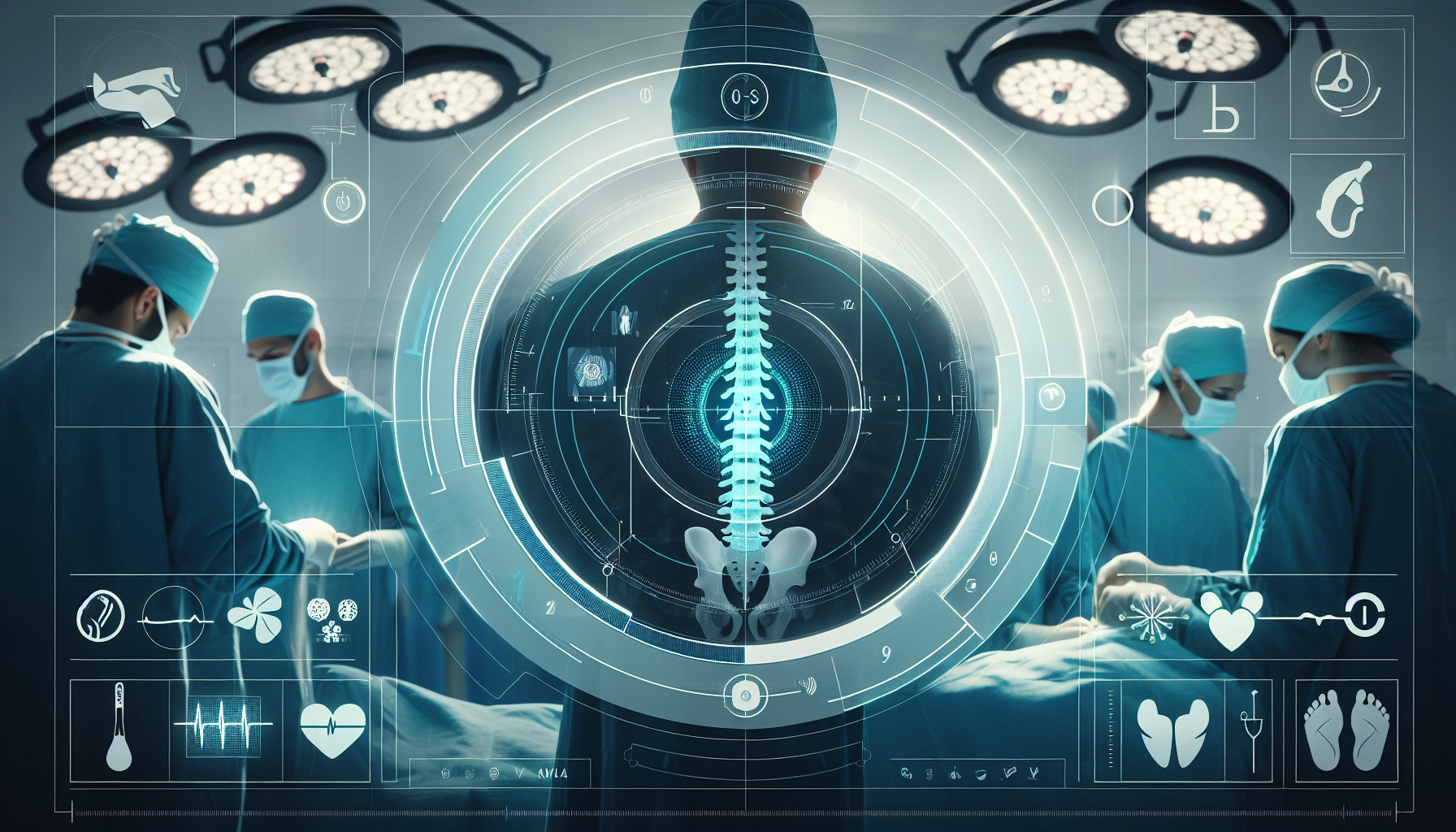Our Summary
This research paper talks about a rare, serious complication that can happen after lower back surgery called Cauda equina herniation (CEH). The paper discusses the case of a 36-year-old woman who had this complication after a specific type of lower back surgery. After her surgery, she had symptoms like urine leakage, blood in her stools, serious constipation, and no relief from pain in her right leg. An MRI scan showed that there was a leakage of cerebrospinal fluid, which is the fluid that surrounds the brain and spinal cord, at the site of her surgery.
The woman’s urologist and proctologist were consulted and she was given a urinary catheter to help with the leakage, medicine for her hemorrhoids, and underwent training to strengthen her anal sphincter as recommended by her doctor.
After a week of this treatment, the woman’s ability to urinate returned to normal, but she was still constipated, even though her leg pain had lessened. Five months later, she was hospitalized due to pain in both legs and constipation. Another MRI scan showed that the sac containing the nerve roots at her L5/S1 vertebrae (lower back area) was herniated or bulging out.
Another surgery was performed to relieve the pressure on her nerves and repair the sac. This time, the surgeons used a 3D microscope during the procedure. Afterwards, her leg pain and constipation were relieved.
The authors of the paper conclude that this complication, though rare, needs to be given serious clinical attention. The successful outcome in this case shows the potential benefit of using 3D microscopy during surgery for patients with this complication.
FAQs
- What is Cauda equina herniation (CEH)?
- What treatments were given to the patient who experienced CEH after her endoscopic L5-S1 laminectomy and discectomy?
- How was the CEH complication treated using 3D microscopic guidance?
Doctor’s Tip
A helpful tip a doctor might tell a patient about spinal decompression is to follow post-operative instructions carefully, including maintaining proper posture, avoiding heavy lifting, and attending recommended physical therapy sessions. It is also important to communicate any new or worsening symptoms to your healthcare provider promptly.
Suitable For
Patients who are typically recommended spinal decompression include those who suffer from chronic back pain, sciatica, herniated discs, degenerative disc disease, spinal stenosis, and other conditions that cause compression of the spinal nerves. In some cases, patients may also be recommended spinal decompression as a treatment option for failed back surgery syndrome or as a non-invasive alternative to traditional open back surgery.
Timeline
- Patient experiences right L5-S1 radiculopathy and undergoes endoscopic L5-S1 laminotomy and discectomy
- Develops urine leakage, hematochezia, aggravated constipation, and persistent pain in right lower limb a day after surgery
- MRI reveals cerebrospinal fluid leakage at surgical site
- Fitted with urinary catheter, prescribed hemorrhoid medication, and undergoes anal sphincter training
- After 1 week, urinary function returns to normal but constipation persists and lower limb pain eases
- Hospitalized 5 months later due to radiating pain in both lower limbs and constipation
- MRI reveals herniation of L5/S1 nerve root sac
- Undergoes L5/S1 total laminectomy decompression and dural sac repair under 3D microscopy
- Postoperatively, lower limb pain and constipation are alleviated.
What to Ask Your Doctor
- What is spinal decompression and how does it work?
- What are the potential risks and complications associated with spinal decompression?
- How likely is it that I will experience a complication like cauda equina herniation after spinal decompression surgery?
- What are the signs and symptoms of cauda equina herniation that I should watch out for after surgery?
- How will you monitor me for any signs of complications after spinal decompression surgery?
- What is the success rate of spinal decompression surgery for my specific condition?
- Are there any alternative treatments to spinal decompression that I should consider?
- How long is the recovery process after spinal decompression surgery and what can I expect in terms of pain management and physical therapy?
- What is the long-term outlook for someone who has undergone spinal decompression surgery?
- Are there any lifestyle changes or precautions that I should take after spinal decompression surgery to prevent complications?
Reference
Authors: Zhang Z, Dong Y, Xie Y, Yang H, Fan X, Yu Y. Journal: J Vis Exp. 2024 Nov 8;(213). doi: 10.3791/67045. PMID: 39584684
